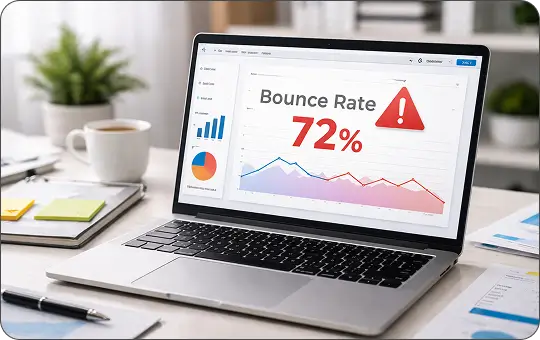

The implementation of various technological products in businesses has resulted from changing times. With various aspects of businesses changing daily due to changing customer requirements and market demands, these tools have proven to be essential for staying afloat in this highly competitive market.
Podcasts are increasingly being used by businesses to improve their prospects. It is an effective marketing tool. On mobile devices, podcasts have replaced talk radio. Indeed, the increased use of mobile phones has resulted in an explosion of podcasting.
People nowadays expect a variety of content to meet their needs. Everyone does not have time to read a 6,000-word blog post. Others prefer a quick video, and then there’s podcasting, which is a great way to reach people when they’re not sitting in front of a computer. What’s the best part? You don’t have to be a seasoned content creator to learn how to launch a podcast for your company.
Podcasting has gone mainstream over the years. A podcast is a collection of digital audio files that can be downloaded from the internet. Once the digital files are uploaded, users can subscribe to the podcast to receive them
Podcasts are audio shows, similar to radio shows, that are available for listening on demand. They are available for use on smartphones and tablets, including Apple and Android devices, as well as virtual personal assistants such as Alexa and Google Assistant, as well as online. They cover a wide range of topics, from politics to food, technology to sports, travel to home maintenance, finance to fitness, pop culture to history, and more.
A well-researched and thoughtfully written piece of content can assist you in reaching your intended audience. This strategy provides your company with maximum exposure at no or low cost. Other digital marketing methods, such as PPC, search engine optimization, affiliate marketing, email marketing, and so on, are quite costly.
Many decades ago, businesses relied on traditional marketing methods such as media advertising, direct mail, brick-and-mortar placement, walk-in traffic, word of mouth, and so on. These provided succinct communications about a company’s services and products, expertise, and brand recognition. New digital solutions such as targeted digital display, digital advertising, content blogs – and podcasting – are available in the twenty-first century.
The advantages of a podcast are similar to those of a blog. Both enable you to communicate your knowledge and expertise, thereby increasing your credibility. You can provide advice, industry insights, tips, and specific work-related experiences, all of which demonstrate your expertise.
You can include information about your products and services that are relevant to the podcast. For instance, if you are a financial planner creating a podcast about retirement planning, work on information about the services you provide in that area. In this way, podcasts can also serve as a form of advertising for your company.
It is critical for your business to have a strong, trustworthy brand. You will not be able to increase your customer base or sales if your target audience is unfamiliar with your brand. You can make your company a household name by delivering regular podcasts. Always remember to connect your topic to your product or service. Every time you relate a topic to your product, your audience becomes more familiar with your brand.
Three out of every five podcast listeners have looked up products or services after hearing an ad on a podcast, and nearly one-quarter have made a purchase.
Advertisements are also more engaging than on other formats, according to listeners, and 2 in 5 say they are less intrusive. This could be because the majority of ads are read aloud by the host, which helps to maintain continuity within the podcast.
Podcast consumption has a historically low barrier to entry. People will choose content that puts them in control, as we’ve seen with cord-cutting and SVOD (streaming video on demand). Podcasts are no exception.
According to a recent survey of podcast listeners, nearly two-fifths (42 percent) listen to while driving, and another 18 percent listen to while flying. Some people listen to podcasts while on vacation (16%) and at the gym (16 percent).
From YouTube and Google Podcasts to Apple Podcasts and Stitcher, anyone with a device can listen to podcasts whenever and wherever they want.
With so much information available online, it’s easy for your audience to become disoriented. Because there is so much written content on the internet, audio information is a welcome change. It also allows you to convey your message in a highly interactive manner, which written content may not always provide.
According to a survey of 300,000 podcast listeners, 63% of people purchased something promoted on a host’s show. According to the same survey, 71% said they’d visit a sponsor’s website, while 63% said they’d consider a new product or service advertised on a podcast they’re listening to.
One of the most important aspects of podcasting is this. The popularity of your podcasts will be heavily influenced by the platform through which they were distributed or hosted. You can reach a global audience by submitting your podcasts to leading podcast directories such as iTunes, Stitcher, SoundCloud, TuneIn, Spreaker, iPodder, YouTube, Spotify, and many more. You can also share your podcasts with your audience via social media.
Above all, there are numerous reasons why small businesses should incorporate podcasts into their digital marketing strategies. A podcast with well-researched content allows you to get your ideas out to the world in a new and enjoyable way. Businesses that want to keep their audience’s attention for a longer period should consider making a podcast part of their marketing strategy.Partnering with the Best Digital Marketing Company in Bangalore can further help in planning, promoting, and scaling your podcast to reach the right audience effectively.